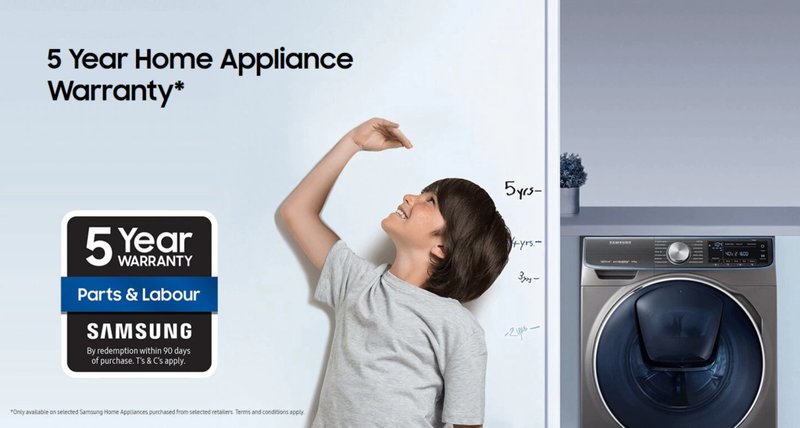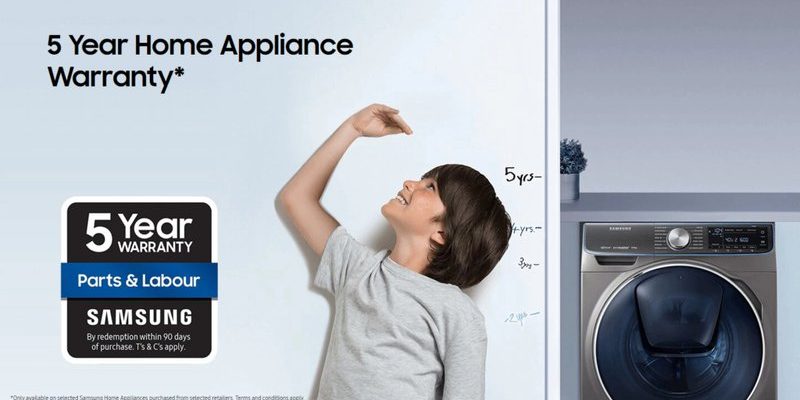
Think of a warranty like a ticket to free repairs or replacements if your Samsung oven misbehaves during a certain period. But this ticket isn’t always transferable. It depends on where you bought it, the warranty terms, and sometimes even the model itself. Let’s pull back the curtain and explore how warranty transfers work for Samsung ovens and ranges, so you won’t feel left in the dark.
Understanding Samsung Oven Warranties: What’s Covered?
Before diving into transfers, it helps to know what Samsung warranties actually cover. Most Samsung ovens and ranges come with a **limited warranty** that typically protects against manufacturing defects and certain part failures for about one year. Sometimes, specific components like the cooktop or electronic controls might have extended coverage.
Here’s the thing: the warranty counts from the original purchase date, not when the oven is transferred or resold. That means if you bought your Samsung oven 10 months ago and sell it now, the warranty likely has about two months left—at least on paper.
Samsung’s warranties usually cover:
- Defects in materials or workmanship
- Failure of key components under normal use
- Service calls for repairs, parts, and labor
But it doesn’t cover things like accidental damage, improper use, or routine wear and tear. So, even if the warranty transfers, it’s important to understand what stays protected.
Can You Transfer Samsung Oven Warranty To A New Owner?
Here’s the heart of the matter: Samsung’s warranty terms generally specify that the coverage is valid for the “original purchaser” only. This means that if you sell your oven, the warranty does *not* automatically transfer to the new owner.
Let me explain why. Warranties are legal agreements, and manufacturers design them to protect the person who *initially* bought the product. It’s a bit like a concert ticket that’s only good for the person who bought it—not anyone they pass it to afterward.
That said, there are exceptions. Some warranties might allow transfers if you register the new owner with Samsung or if you have special documentation. But these cases are rare and usually require contacting Samsung directly.
If you’re selling or gifting your oven, it’s a good idea to:
- Check the warranty paperwork or Samsung’s official website
- Contact Samsung customer service to confirm if transfer is possible
- Provide the new owner with all receipts and original warranty documents
This way, even if the warranty can’t transfer, the new user understands the appliance’s history and can plan accordingly.
Why Doesn’t Samsung Allow Warranty Transfers Easily?
You might be wondering, “Why be so strict about warranty transfers?” Here’s the thing: warranties cost money. Manufacturers calculate warranty expenses based on expected product lifespans and who actually owns the appliance.
Allowing warranty transfers freely could lead to misuse or abuse—for example, people swapping appliances to reset warranty periods or avoid paying for repairs. It’s a way for Samsung to keep control over service quality and costs.
Plus, there’s the issue of accountability. If a warranty claim arises, Samsung needs to verify the product’s purchase history, usage, and registration details. The simplest way to do that is to limit coverage to the original buyer.
That said, Samsung does try to offer helpful support outside of warranty—like paid repairs or troubleshooting assistance—to anyone who owns their products, new or old.
How To Protect Yourself When Buying A Used Samsung Oven
Buying a used Samsung oven or range can save you some money, but warranty coverage might be your first concern. Since transfer usually isn’t automatic, here’s what you can do to avoid surprises:
- Ask for the original purchase receipt: This shows when the oven was bought and how long the warranty might still last.
- Inspect the oven carefully: Look for signs of damage or malfunction before buying.
- Contact Samsung Support: Use the model and serial number to check warranty status.
- Consider purchasing extended or third-party warranties: Some companies offer coverage for used appliances that can give you peace of mind.
Honestly, buying used always carries some risk, but knowing the warranty details upfront helps you make a smarter decision.
Registering Your Samsung Oven: Does It Affect Warranty Transfer?
Samsung encourages buyers to register their products online. Registration links your oven’s serial number with your name and purchase date, which can make warranty claims easier.
But here’s a catch: registering your oven doesn’t create a transferable warranty. It just helps Samsung know who the original owner is. If you sell the oven, the registration typically stays tied to you.
Some brands offer warranty transfers when the new owner registers the product under their name—but Samsung’s policy is more strict. So even if you register an oven, the warranty usually remains non-transferable.
Still, it’s a good habit to register your new Samsung oven to access helpful resources like troubleshooting guides and customer support faster.
Alternatives To Rely On If Warranty Can’t Be Transferred
If the warranty on a Samsung oven won’t transfer, you might feel stuck, especially if the oven malfunctions after resale. But there are some alternatives to consider:
- Extended Service Plans: Third-party providers often sell extended warranties or service plans that cover repairs beyond the original warranty.
- Paid Repairs: Samsung offers paid repair services and troubleshooting help for all customers, even if warranty is expired or non-transferable.
- DIY Troubleshooting: Samsung’s website and user manuals provide handy tips on common problems and resets (like code errors or syncing issues), which can save you a service call.
If you’re handy, knowing how to reset or pair your oven’s electronic controls can sometimes solve pesky errors on your own.
How To Contact Samsung For Warranty Questions Or Repairs
If you’re ever in doubt about your Samsung oven warranty or how to handle a repair, the best thing is to reach out to Samsung directly. Here’s how to do it easily:
- Visit Samsung’s official support website: You can enter your oven’s model number and serial code to get warranty info.
- Call Samsung support: Their customer service reps can answer warranty questions and guide you through troubleshooting or repair options.
- Use Samsung’s live chat or email: For less urgent queries, this can be a quick way to get help.
Be ready with your proof of purchase and model details, since that will speed up the process.
“Knowing the exact warranty status of your Samsung oven before buying or selling can save a lot of headaches and unexpected costs later.”
Wrapping It Up: What To Remember About Samsung Oven Warranty Transfers
So, can you transfer warranty on a Samsung ovens & ranges to a new owner? The short answer is usually *no*. Samsung’s warranty is designed to protect the original purchaser and generally isn’t transferable when you sell or gift your appliance.
That doesn’t mean the new owner is left totally stranded—paid services, support resources, and third-party plans can fill some gaps. And if you’re buying used, being clear about warranty limitations helps avoid surprises.
Here’s the key takeaway: always check the warranty terms, keep all purchase documents handy, and if you’re unsure, reach out to Samsung support before making big decisions. It’s a bit like reading the recipe before you bake—knowing what’s in the warranty mix helps you get the best results after the purchase.
With a little preparation and some savvy questions, you and the next owner can keep that Samsung oven cooking smoothly—even if the warranty itself doesn’t quite change hands.
